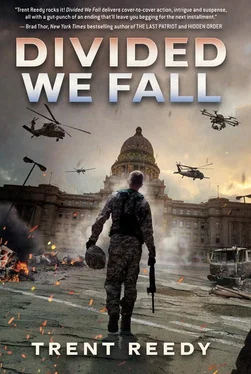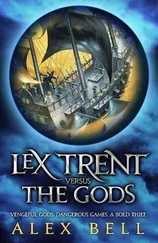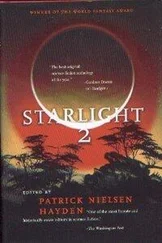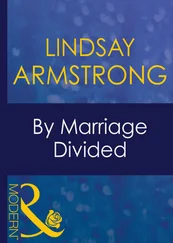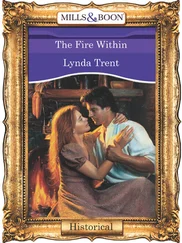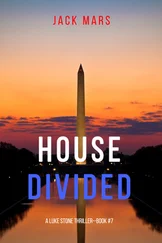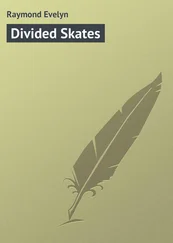I closed my eyes for a moment. “What?”
“What happened to freedom of speech? Right to assembly? The government can have soldiers shoot American citizens now and nothing happens to them?”
“I…” I felt like throwing up again. “I don’t think it’s that simple.”
JoBell patted my arm. “I know it’s not. Of course, not all soldiers are bad. I’m glad you weren’t in the middle of this. It makes me sick.”
“You and me both.” I hammered down on the accelerator to get to school faster.
* * *
I’d never felt so relieved to be in school, even if I was sitting in what everybody always said was the toughest graduation requirement for seniors, Mr. Shiratori’s American Government class. Coach Shiratori paced the front of the room, carrying what he called his “Stick of Power,” a piece of well-sanded wood a little longer than a yardstick, and just over half an inch wide. The end of the stick tapped the gray tiled floor with every step he took. Each tap echoed in the quiet.
He put the Stick of Power in its holster on the side of his podium, then picked up an actual paper version of our textbook. With all the pages crammed between two thick covers like that, the book was huge. The handful of books I’d read in the last few years were all on my comm. Not too many people bothered with the old, clunky paper books anymore.
“One key difference between this course and the American History class that most of you took as freshmen,” Mr. Shiratori said, “is that we will not be using the textbook nearly as much in Government. The whole first quarter of the book recounts the American Revolution and the events surrounding the drafting of the Constitution. It’s all material we’ve already covered.
“So.” He dropped the textbook, letting it slap loud on the podium. “We’re going to try something you kids never do anymore, now that you’re always texting on your comms. We’re going to actually talk to one another, face-to-face, voice-to-voice.”
He yanked the Stick of Power out of its holster and threw it up in the air, swinging his arm to snatch it in his other hand before it started to fall. “The Freedom Lake High School Board of Education requires all seniors to pass American Government in order to graduate. The board obviously believes this class is important. So… Why?” The room was silent for a moment. “Why is it important to study your government?”
Mary Beth Reese, the only girl challenging JoBell for valedictorian, reached to switch on her comm. Shiratori tapped her desk with the Stick of Power. “Comms off! Don’t look it up. Don’t quote the book or report what the Internet has to say on the subject. Tell me what you think.”
TJ raised his hand and Coach Shiratori pointed the stick at him. TJ flashed his big stupid-ass grin. “So we know who will be sending Wright to war.”
A couple of the guys over on TJ’s side of the room chuckled. I leaned toward Sweeney and whispered, “Remind me to knock his teeth out at practice.” He nodded.
“Well, that might be a bit of a stretch,” Coach said. “But yeah, we should be aware of who is making important decisions like sending our troops overseas.” He saw JoBell’s raised hand and smiled. “Ah, Miss Linder. Never one without an opinion. Let’s hope you haven’t mellowed out since your freshman year. Why do you think it’s important to study government?”
JoBell leaned forward in her chair. “Because people need to know that our governor thinks he doesn’t have to listen to the president of the United States, that it’s perfectly fine to violate the First Amendment rights of hundreds of people, and that he lets soldiers get away with murder!”
“Does anyone know what JoBell is talking about?” Mr. Shiratori asked. “Hmm? Have you been keeping up with the news?”
I sank lower in my desk as my cheeks flared hot.
“Some kind of shooting?” Caitlyn Ericson said.
Coach tapped the stick on the floor. “A tragic shooting in Boise Friday night.”
He told the class all about it. He got most of it right. I don’t know. I was reading the stupid “soar with the eagles” motivational posters on the walls, trying not to have to hear about it all over again.
“Pay attention, Wright!” he said. I sat up a little bit. “Now, it’s a complicated issue about who had the authority to do what. Miss Linder mentions the First Amendment to our highest law, the United States Constitution. The First Amendment guarantees us, among other things, the right to freedom of speech and the right to peaceably assemble.”
“That’s the problem!” I blurted out. “The rioters, the protestors. Whatever. They weren’t peaceful at all.”
JoBell glared at me. “That doesn’t give our soldiers the right to kill them.”
“I don’t get it,” TJ said. I wasn’t surprised. “Why were these people even protesting?”
“Ah.” Mr. Shiratori held up the Stick of Power. “This is another example of the importance of studying our government. As we’ll learn in greater detail when we study the Constitution in its entirety, Article Six, Clause Two states, in part, ‘This Constitution, and the Laws of the United States which shall be made in Pursuance thereof, shall be the supreme Law of the Land, and the Judges in every State shall be bound thereby, any Thing in the Constitution or Laws of any State to the Contrary notwithstanding.’”
“Whoa,” said Cal.
“Whoa indeed, Mr. Riccon. Can you tell me what that means?”
“Uh, Coach, I don’t—”
“Mr. Riccon, as I’ve told you before, on the football field or even in the halls, you are free to call me Coach, but here in my classroom you’ll address me as Mr. Shiratori or sir. Now do you know what that clause means, Mr. Riccon?”
“I was just impressed that you had all that memorized, sir.” Cal didn’t say anything more, but Mr. Shiratori kept looking at him. The silence stretched on. “But… I mean… it’s… supreme, you know. So, really powerful. Powerfuller than the states, even. Maybe,” Cal said. “I don’t know, Coach. Er, sir.”
Mr. Shiratori didn’t move. “‘Powerfuller than the states, even.’ Mr. Riccon, your unconventional grammar notwithstanding, I think you pretty much understand the clause. It’s the part of the Constitution that says the Constitution and the laws passed by Congress and the president are more powerful than laws passed by states. So Idaho can’t pass a law that says, ‘There is no US president.’”
“Idaho has to listen to what the president says,” said JoBell.
“What does this have to do with the protest?” TJ asked.
Mr. Shiratori tapped the stick on the floor. “I’m getting to that. In addition to the First Amendment and Article Six, Clause Two, otherwise known as the Supremacy Clause, there is also the Tenth Amendment, which states, ‘The powers not delegated to the United States by the Constitution, nor prohibited by it to the States, are reserved to the States respectively, or to the people.’”
“Whoa,” Cal said again. “Mr. Shiratori, how do you memorize all—”
“I study, Mr. Riccon, and I’ve been teaching this class here for fifteen years. The Idaho state assembly and our governor recently voted for what is called the nullification of a law passed by the US Congress, a law that would require us all to carry a national identification card. Idaho basically said that requiring people to carry ID cards is a power reserved to the states. They say certain features of the new federal ID cards, such as the fact that they’ll carry all our medical records and contain a chip allowing the location of the card to be tracked by satellite, constitute an illegal invasion of our privacy.”
Читать дальше
